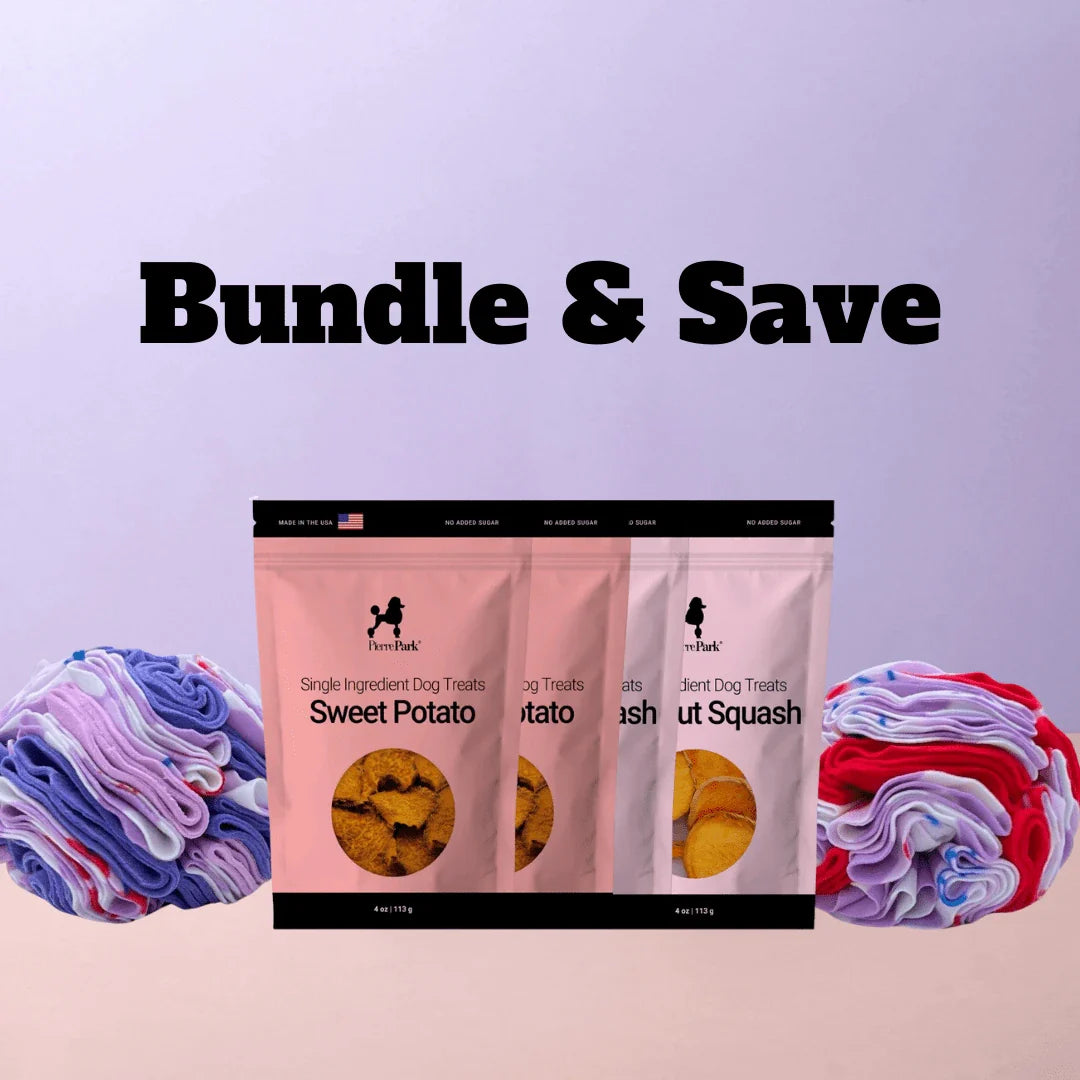Table of Contents
Vet-Approved

This article has been rigorously reviewed and validated by Dr. Annina Müller, med. vet., an accomplished veterinarian who earned her veterinary degree at the University of Bern, specializing in Small Animal Surgery. Her expertise ensures that the advice provided is both current and accurate in the field of veterinary medicine.
Feeding your dog treats is as enjoyable for them as it is for us dog owners, but can puppies have treats, or do you need to wait until they're mature?
Puppies can definitely eat dog treats, as long as they're a suitable age and are given treats that are the right size and contain high-quality ingredients.
Stay tuned for a comprehensive guide covering everything you need to know about feeding your puppy treats, including the ideal quantity and the most suitable types.
When To Start Feeding Your Puppy Dog Treats
You can start feeding your puppy dog treats once they're around two months old or between 8 and 10 weeks.
This gives them enough time to start with dry food as their main diet after the weaning process.
7 Tips For Feeding Your Puppy Dog Treats
Here are seven easy tips for feeding your puppy dog treats safely and avoiding common problems that many dog owners face.
1. Use Smaller Treats Designed For Puppies
When you first start feeding your puppy treats, make sure you provide them puppy-sized treats or break down larger treats into smaller sizes.
Larger treats designed for adult dogs can be harder to chew and potentially pose a choking hazard to your dog. Dog treats specifically designed for puppies are the ideal option, as these are much smaller and softer than adult dog treats.
2. Keep Portion Sizes Small
When your pup starts eating treats, it can be easy to overdo it and feed them too many, but this can lead to stomach problems and even more severe problems if you keep repeating it.
Remember that dog treats are not designed to be nutritionally complete; your puppy should be getting the majority of their calories through puppy food, which is designed to meet their nutritional and energy needs.
Excess treat feeding can lead to problems like diarrhea in the short term and a lack of critical nutrients in the long term, which can affect growth.
Stick to the 10% rule, where 10% or less of your puppy's daily calories come from treats or other snacks.
3. Choose Simple, Quality Ingredients
Dog treats can contain a wide range of different chemical preservatives, flavorings, and colorings, which offer very little nutritional value to your puppy.
Always check the ingredient list to make sure the source of protein is both high-quality and named, and the fewer ingredients, the better.
Our sweet potato dog treats are a great example of this, containing only one nutritious ingredient and no harmful additions.
4. Avoid Freeze-Dried Treats
Freeze-dried dog treats are made by taking fresh or raw ingredients and freezing them at very low temperatures. They're then placed in a vacuum chamber under low pressure to leave behind only dry matter.
Freeze-dried dog treats can be great for adult dogs, but they do still contain bacteria, as the freeze-drying process only removes a variable percentage of bacteria and not all of it.
Puppies under one year of age are highly susceptible to gastrointestinal infections, including diarrhea, so it's better to stick to treats that have no risk of bacteria from raw products like freeze-dried treats.
5. Avoid Hard, Difficult-to-Chew Treats and Bones
For young dogs, especially when they're growing new teeth, it's better to avoid hard treats like beef jerky. These can be too tough and might harm their teeth.
Also, bones can be risky because puppies can swallow small pieces. Choose softer, easier-to-chew treats for your puppy's safety and health.
6. Associate The Treats With Training
This tip is more about achieving success in long-term obedience training for your dog than it is about their health.
For the best results, it's important to introduce treats as rewards when your dog is very young. Even if your puppy hasn't learned many tricks yet, start by teaching it basic commands and use treats as a reward during training sessions instead of simply handing them out.
As responsible dog owners, we want to avoid our pups constantly expecting treats. To pave the way for future success, it's crucial to set these expectations right from the beginning.
7. Avoid Human Foods
You should avoid giving your puppy human foods as they likely contain many different ingredients that can harm their health.
For example, onions, chocolate, and even alcohol are all toxic to dogs You can find additional examples listed here here.
Stick to dog treats that contain as few ingredients as possible and avoid things like leftovers from your meal, even if they beg for food.
Summary
Introducing dog treats to your puppy has many benefits, especially for setting expectations during training, but it's important to do it at the right time and with the right types of treats.
Stick to puppy-friendly treats that aren't too hard with as few ingredients as possible to reduce the chance of upsetting your puppy's stomach.
Ensure that no more than 10% of your puppy's daily calories come from treats. The majority of their diet should consist of nutritionally balanced food to support their growth and well-being.






